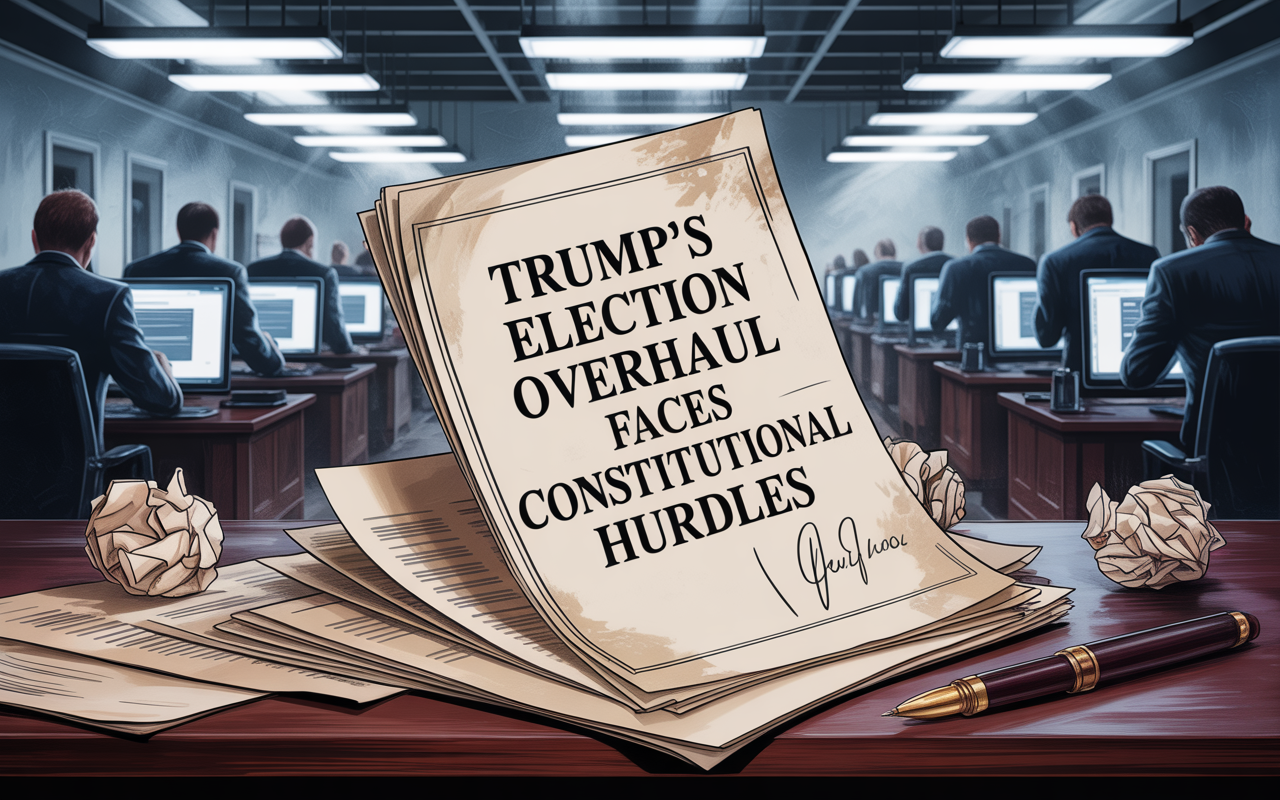The Cereal City Buzz
Archives
Trump's Election Overhaul Faces Constitutional Hurdles
SIGN UP FOR OUR NEWSLETTER
Trump's Election Overhaul Faces Constitutional Hurdles |
President's Executive Order Challenges State Authority Over Elections |
President Donald Trump has announced plans to overhaul the U.S. election system, aiming to eliminate mail-in ballots and voting machines ahead of the 2026 midterm elections.
In a recent social media post, Trump declared his intention to sign an executive order targeting these voting methods, citing concerns over their accuracy and potential for fraud.
However, legal experts emphasize that the U.S. Constitution delegates the administration of elections primarily to individual states, not the federal government.
Article I, Section 4 of the Constitution states that the "times, places and manner" of elections are determined by state legislatures, with Congress holding limited authority to alter these regulations.
Notably, the Constitution does not grant the president any direct power over election administration.
In response to Trump's announcement, Arizona Secretary of State Adrian Fontes expressed strong opposition, stating he would "tell [Trump] to pound sand" and indicating that any attempt to implement such a ban via executive order would face immediate legal challenges.
Arizona relies heavily on mail-in ballots, with most voters casting early ballots by mail.
Despite Trump's claims that mail-in voting leads to widespread fraud, studies and reviews have consistently found that voting fraud in the U.S. is rare.
For instance, an Associated Press review after the 2020 election found fewer than 475 cases of potential fraud in the six battleground states where he disputed his loss, far too few to tip that election to Trump.
Furthermore, Trump's assertion that the U.S. is the only country using mail-in voting is inaccurate.
At least 34 countries, including Canada, the United Kingdom, Australia, and Germany, allow some form of postal voting.
Given the constitutional constraints and the decentralized nature of the U.S. election system, any executive order attempting to unilaterally change state-run election procedures is likely to face significant legal challenges and be deemed unenforceable.
As the 2026 midterm elections approach, the balance between federal authority and state control over election processes remains a contentious issue. |

